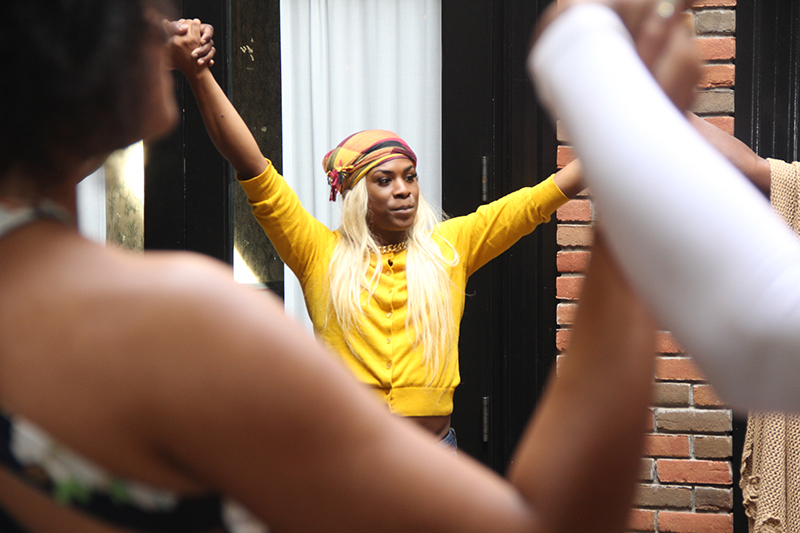Defining The Problem
We want a world where Black Trans Women & Black Trans Femmes are thriving and leading solutions for social, economic, and political change.
Black Trans Women & Black Trans Femmes’s quality of life is tied to both cultural attitudes and institutional policies. Black Trans Women & Black Trans Femmes, existing at multiple intersections of oppression, are uniquely singled out for criminalization by the police and government. Black Trans Women & Black Trans Femmes experience disproportionately higher rates of housing insecurity, police violence, and under/unemployment due to discrimination based in their perceived gender and race. While all transgender women of color are more marginalized than their peers, we must begin by addressing Black Trans Women & Black Trans Femmes because of the urgent need to end the epidemic of anti-Black violence. When Black Trans Women & Black Trans Femmes are free to live and lead, all transgender women of color, all Black people, all transgender people, and ultimately all people will be free.
Defining The Strategy
We demand an end to the horrific, multifaceted, and disproportionate deadly violence against Black Trans Women and Femmes.
Black Trans Women and Femmes must be trusted to lead movements the way we live our lives: fiercely.
We recognize that change will only come when our allies and supporters rally together for our collective liberation. Collective liberation requires not just policy & legal change but the shifting of hearts and attitudes about the value of Black trans lives. In order to shift the culture, we must do intra-community work with cisgender allies in Black communities.
Here, we present a collection of demands to foreground a better future for Black Trans Women and Femmes.
Defining Violence
We use “Black Trans Women & Black Trans Femmes” to include a broad range of people of African descent who do not agree with being coercively assigned male at birth, including but not limited to: binary transgender women, nonbinary trans-feminine people, intersex trans women and intersex trans feminine people.
We must broaden our definition of violence. Although violence can look like hate speech, discrimination, and intimate partner violence, it is not limited to only physical, interpersonal experiences. To understand the multi-faceted experiences of Black Trans Women and Black Trans Femmes, we must include violence caused by government institutions, like Immigration Customs Enforcement (ICE) and the Department of Justice (DOJ), which enforce dominant systems of oppression.
Transmisogynoir, a term coined by writer Trudy as the specific oppression of Black trans feminine people where anti-Blackness, cissexism, and misogyny form a unique system of oppression. The term comes from “misogynoir” coined by Black Queer feminist Moya Bailey, who created the term to address the unique experience of misogyny directed toward Black cis women in American visual and popular culture. The concept is grounded in the theory of intersectionality, which analyzes how various social identities such as race, gender, class, and sexual orientation interrelate in systems of oppression.
Cissexism is a set of beliefs, assumptions, and attitudes that cis people’s gender identities and expressions are superior to those of trans people and is one of the producers of discrimination against trans people.
Criminalization is the process by which behaviors or actions or sets of actions are made “criminal” by making them illegal or against the law.
Policing is the social relationship comprised of a set of practices that are used by the state to enforce law and social control through the use of force.
Pretrial Detention or Pretrial Incarceration occurs when someone is accused of a “crime” and is held in jail before the trial has taken place.
Demands
Acknowledgments
We are deeply grateful to the many people who generously contributed to, reviewed, and offered on Black Trans Women and Black Trans Femmes Leading and Living Fiercely, including: Nyla Foster, Ebony Harper, BT – Director and Founder of Trans(forming), Tre’Andre Valentine, Marisa Richmond, Raquel Willis, Kylar Broadus, Chase Strangio, and Taffy Johnson.

